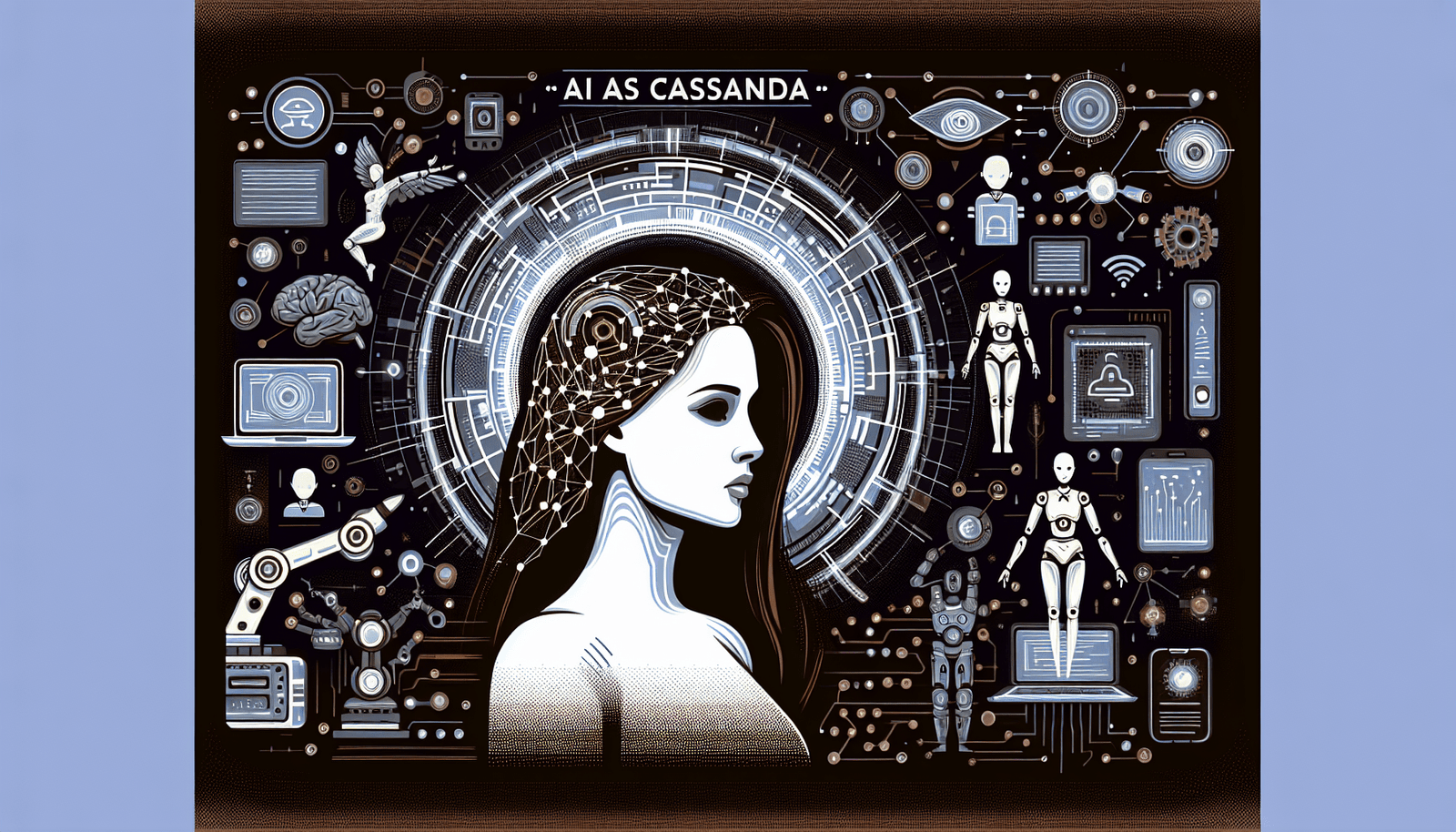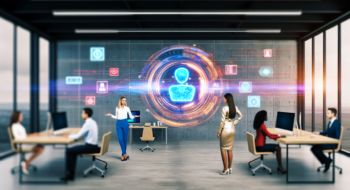Understanding AI’s Cassandra Moment: Navigating Predictions and Warnings
As we stand at the precipice of unprecedented advancements in technology, the relevance of AI (Artificial Intelligence) in our society has never been more pronounced. The concept of a “Cassandra moment”—where critical warnings are issued, yet largely ignored—echoes prominently in discussions about AI’s rapid evolution. This phenomenon represents a profound juncture for technology professionals, ethicists, and society at large, as we navigate the complexities of our future in a world increasingly influenced by AI.
The Cassandra Moment Defined
In mythology, Cassandra was bestowed with the gift of foresight but cursed so that no one would believe her predictions. This allegory is increasingly applicable in today’s dialogues surrounding AI, where experts are vocalizing warnings about the ethical and practical implications of automation and machine learning. The urgency of these discussions raises essential questions about our technological landscape and the consequences of ignoring these alerts.
What Are the Predictions for AI?
- Exponential growth in automation across various sectors.
- Increased reliance on AI for decision-making processes.
- Possible job displacement due to automation.
- Enhanced personalization versus privacy erosion in consumer technology.
- Heightened need for constant vigilance over ethical guidelines.
These forecasts underscore the critical juncture we face in balancing the benefits of innovation with associated risks and ethical considerations.
Consequences of Ignoring Warnings
The implementation of AI technologies can lead to profound consequences if the risks are underestimated or ignored. Society might experience:
- Privacy Erosion: With AI systems demanding vast amounts of data, individual privacy could suffer, making citizens vulnerable to exploitation.
- Bias in Decision Making: Algorithms trained on flawed datasets can perpetuate or even exacerbate biases, affecting marginalized groups the most.
- Loss of Control: As AI systems become more autonomous, humans may lose direct oversight of critical decision-making processes.
- Job Displacement: Rapid automation can lead to significant job loss in traditional sectors, raising questions about economic stability and workforce readiness.
The Role of Ethics in AI Governance
Ethics must play a crucial role in the governance of AI technologies. Discussions surrounding responsibility and accountability become paramount as we incorporate AI into our daily lives. The societal implications are vast, and ethical frameworks can provide a roadmap for responsible development and application of AI.
Building Trust in AI
The successful integration of AI into society hinges on establishing trust among users. To foster this trust, stakeholders need to address:
- The transparency of algorithms and potential biases inherent in AI.
- Clear communication regarding how data is utilized and individuals’ rights regarding their personal information.
- Open dialogues about the consequences of AI implementations and the potential impacts on jobs and creativity.
Innovation and the Future of AI
The road ahead for AI is fraught with possibilities. The balance between fostering innovation and ensuring ethical practices is delicate. Future advancements can lead us to:
- Creating cutting-edge technologies that enhance productivity and quality of life.
- Developing robust AI frameworks that prioritize human rights, ethics, and societal norms.
- Cultivating a culture of continuous learning and adaptation to technological changes.
Conclusion: A Call to Action
As we embrace the potential of AI, we must recognize the implications of our actions. The Cassandra moment challenges us to listen to warnings from experts and integrate ethical considerations into our technological endeavors. By doing so, we can unlock AI’s potential while contemplating its associated risks—crafting a future that prioritizes human dignity, innovation, and societal benefit.
Ultimately, the responsibility lies with us, both as innovators and consumers, to shape a future where AI enhances our lives without compromising our ethical standards. The time for thoughtful governance and proactive engagement is now—not just to avoid a Cassandra fate, but to build a society that thrives amidst the challenges posed by AI.
SEO Description
This article explores AI’s “Cassandra moment,” highlighting the critical predictions and warnings surrounding its rapid development. It discusses the implications for society, including ethical considerations, privacy, and the necessity for responsible governance. As technology continues to evolve, understanding the risks and consequences of AI is paramount for fostering innovation while maintaining trust in its applications. Join us as we navigate this intricate landscape and contemplate the future of AI in our society.







